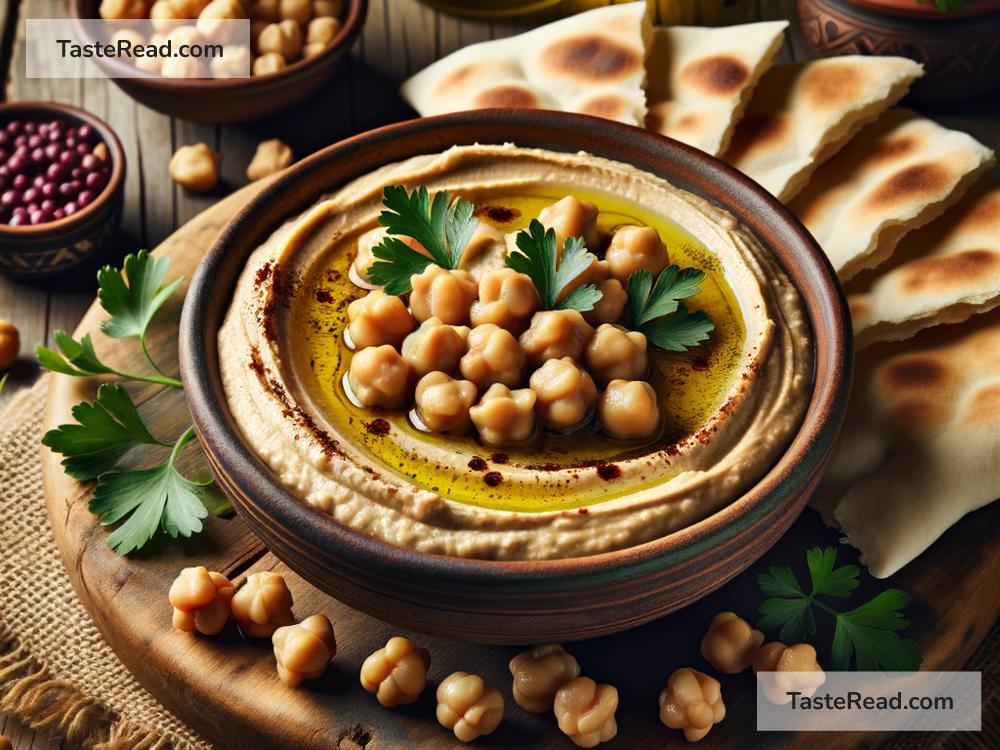Title: A Journey Through Time: Exploring the Origins of Lebanese Hummus
In the world of global cuisine, few dishes bridge cultures and continents quite like hummus. This creamy, savory delight has found its way onto dining tables far and wide, offering a taste of Middle Eastern tradition wherever it goes. Among the various interpretations of hummus, the Lebanese version stands out for its rich history, simplicity, and unparalleled flavor. Join me as we embark on a journey to explore the origins of Lebanese hummus and discover the story behind this beloved dish.
Hummus, at its core, is a concoction of humble ingredients – chickpeas, tahini (sesame paste), lemon juice, and garlic, blended to smooth perfection. But to truly understand the essence of Lebanese hummus, we must venture back in time to the ancient landscapes of the Middle East, where the tale begins.
The exact origins of hummus are shrouded in the mists of history, with several countries in the Middle East claiming it as their own. While it’s difficult to pinpoint the precise birthplace of this dish, historical records suggest that chickpeas, the main ingredient in hummus, have been cultivated in the region for thousands of years. The first known recipes that resemble hummus were recorded in 13th-century Arab cookbooks, indicating the dish’s long-standing presence in Middle Eastern culinary traditions.
Lebanon, with its rich cultural heritage and deep-rooted gastronomic traditions, has played a pivotal role in shaping hummus into the dish we know and love today. Lebanese cuisine is known for its emphasis on fresh ingredients, and hummus is no exception. The Lebanese method of preparing hummus involves carefully selecting the finest chickpeas, soaking them overnight, and then blending them with just the right amount of tahini, lemon juice, and garlic. This attention to detail and quality results in a hummus that is not only delicious but also a reflection of Lebanese hospitality and love for food.
The simplicity of Lebanese hummus is one of its most defining characteristics. Unlike other variations that might include additives or embellishments like roasted red peppers or sun-dried tomatoes, Lebanese hummus stays true to the original ingredients. This simplicity allows the natural flavors to shine through, offering a taste that is both subtle and complex. It’s this balance that has helped Lebanese hummus gain international acclaim, making it a staple dish in Lebanese restaurants around the world.
Lebanese hummus is more than just a food item; it’s a symbol of the country’s rich history and cultural identity. It speaks to the Lebanese people’s connection to their land and their past, serving as a reminder of the generations that have contributed to the country’s culinary heritage. Whether it’s served as an appetizer, a side dish, or a main meal, hummus plays a central role in Lebanese dining, bringing people together to share in the joy of a shared meal.
The journey of Lebanese hummus from ancient times to the present day is a testament to the enduring appeal of simple, wholesome food. As hummus continues to gain popularity worldwide, it carries with it the flavors and traditions of Lebanon, offering a humble yet profound culinary experience.
In a globalized world where cuisines are constantly interacting and evolving, Lebanese hummus stands as a beacon of cultural pride and culinary excellence. Its origins, steeped in history and tradition, remind us of the power of food to connect us to our heritage and to each other. As we dip our bread into a bowl of creamy, flavorful hummus, we partake in a timeless tradition that transcends borders and unites us in appreciation of the simple pleasures in life.
To truly appreciate Lebanese hummus, one must approach it with an understanding of its rich history and cultural significance. It reminds us that, sometimes, the most unforgettable flavors come from the simplest of ingredients, thoughtfully prepared and shared with love. So, the next time you enjoy a serving of hummus, remember the journey it has traveled through time and space to reach your table – a journey that reflects the enduring spirit of Lebanon and its people.


